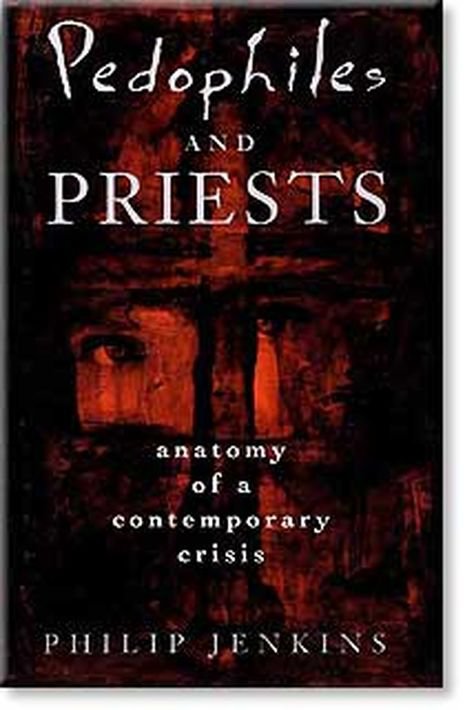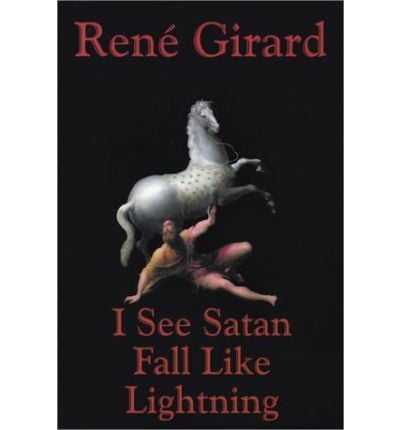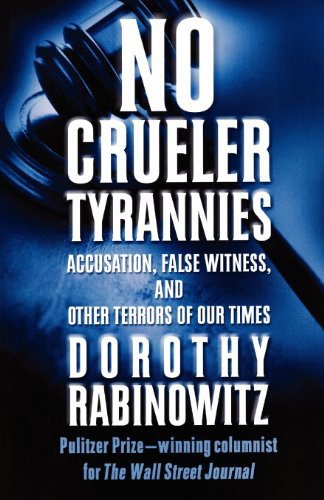
Sex abuse is not one of the issues I want to write about, but sometimes write about it I must. It’s as uncomfortable as the back of a Volkswagen.
For obvious reasons pedophilia gets people all riled up. The last time I had a digital stalker was when I wrote about Anti-Catholicism. An abuse victim himself, the stalker persisted abusively threatening me personally for two days. He enthusiastically told me how much the Catholic hierarchy (and all priests) should have this or that done to them, and how much Anti-Catholicism is justified. The whole sorry episode unfortunately confirmed the old adage that victims frequently become victimizers. This does not bode well for a world full of victims.
I can’t recall whether Rene Girard talks about this in the book, I See Satan Fall Like Lightening, where he claims the value of the victim is the only universal value in our world that’s never open to doubt (thanks to Christianity). From what I recall, he does discuss the perverse phenomenon of victim groups competing against each other. My own experience makes me think of Poles and Jews battling it out in a zero-sum game of WW2 martyrdom; it’s a lose-lose game that Eva Hoffman has undercut in much her writing, especially in Shtetl.

Now Catholics as inherently abusive is one trope that’s been richly mined by Richard Dawkins on his websites, blogs, and social media accounts. I won’t bother to direct you to them, especially since every other headline features something like brutality and torture, you know, the sorts of things Catholics obviously go in for! I’m sure the salacious headlines help to keep his coffers overstuffed. Business is business.
On the other hand, Dawkins is much more open to nuance when it comes to his own boarding school experience. The controversial interview he did for The Times of London (predictably hidden behind a paywall) is probably part of the media blitz for his forthcoming autobiography An Appetite for Wonder (a potential goldmine of comic material for years to come). The interview (excerpted here) made headlines when Dawkins minimized the systematic sex abuse he and his classmates underwent by calling it “mild”:
“In an interview in The Times magazine on Saturday (Sept. 7), Dawkins, 72, he said he was unable to condemn what he called ‘the mild pedophilia’ he experienced at an English school when he was a child in the 1950s.
Referring to his early days at a boarding school in Salisbury, he recalled how one of the (unnamed) masters ‘pulled me on his knee and put his hand inside my shorts.’
He said other children in his school peer group had been molested by the same teacher but concluded: ‘I don’t think he did any of us lasting harm.'”
Perhaps the distinction Dawkins makes here is between C of E boarding school (mild) sex abuse of minors and the Roman (hot) variety? [Whatever it might be, one senses a good deal of the Stockholm Syndrome mixed with financial opportunism in what he says.]
Philip Jenkins, an expert in this controversial area, author of the seminal Priests and Pedophiles, demythologizes this in an article I stumbled upon recently:
“‘My view is there is no evidence that Catholic clergy offend at a higher or lower rate than other clergy or than nonclergy that deal with children,’ Jenkins said. ‘There’s no evidence either way. If somebody says, ‘Well, it’s obvious, they do,’ I say, ‘Fine, give me the evidence,’ and the evidence isn’t there.'”
The article cites another expert who says:
“A number of years ago, Kelly said, she participated [as a counselor] in a treatment program for clergy with sex abuse problems. ‘Most of the clergy that were there were not Catholic clergy,’ she said. ‘They were Protestant clergy. Most clergy that abuse are ministers, but the (Catholic) Church is sexy. It sells papers.'”
The article ultimately gets to the ideological heart of the matter:
“‘That case refutes the argument that the sex abuse problem stems from the practice of celibacy,’ [Philip Jenkins] said, since ‘the Anglican Church does not demand celibacy of its clergy.'”
In other words, the scandal is not concerned with the minors, because it frequently (not always) aims at scoring ideological points against a celibate clergy–frequently by Catholics with agendas.
Catholics attacking Catholics in order to force their vision of the Church upon others isn’t anything new. For example, the black legend of Pius XII was invented by the formerly influential philosopher Emmanuel Mounier, author of the still-relevant tome Personalism, and the Nobel laureate novelist Francois Mauriac. You can read about their schemes here.
One would think there are more effective ways of debating reform than taking a dump square where you eat.
You should note how all that’s been said above by the experts still fails to put abuse by pastors of all stripes within a wider context. The incidence of child pedophilia and molester shuffling is much higher among publish school teachers, policemen, border patrol, but especially within the family. It’s all right there, in plain sight, on the internet and in print from reliable mainstream sources. Do the research if you really do give a damn.
Ultimately, aren’t we doing a disservice to the victims, or aren’t some of them doing harm to themselves, by narrowly focusing on the Catholics?
Think about it: there is a strategic reason why recently passed legislation in California aims to exempt public schools and private employers from responsibility for pedophilia (details here). Why would they want to bankrupt themselves? And if they were to go after individuals then roughly one-fifth of the state would have to go to prison or pay fines. In effect, California recognizes the problems all-out witch hunting on this issue would cause. But is there a more reasonable way of addressing this issue? Could Dawkins be right on this?
I should add there are signs we are turning a page on all the selective reporting, signs that might help us better focus on a much more widespread problem. The Pulitzer Prize winning journalist Dorothy Rabinowitz, author of No Crueler Tyrannies, recently put her reputation on the line by writing about the phenomenon of falsely accused priests attempting to clear their names here.

I’d like to suggest that the next time you engage in scapegoating by making a pedophile priest joke you are only contributing to the problem in a way analogous to the Washington Post when it argued that sex between teachers and students shouldn’t be a big deal here.











